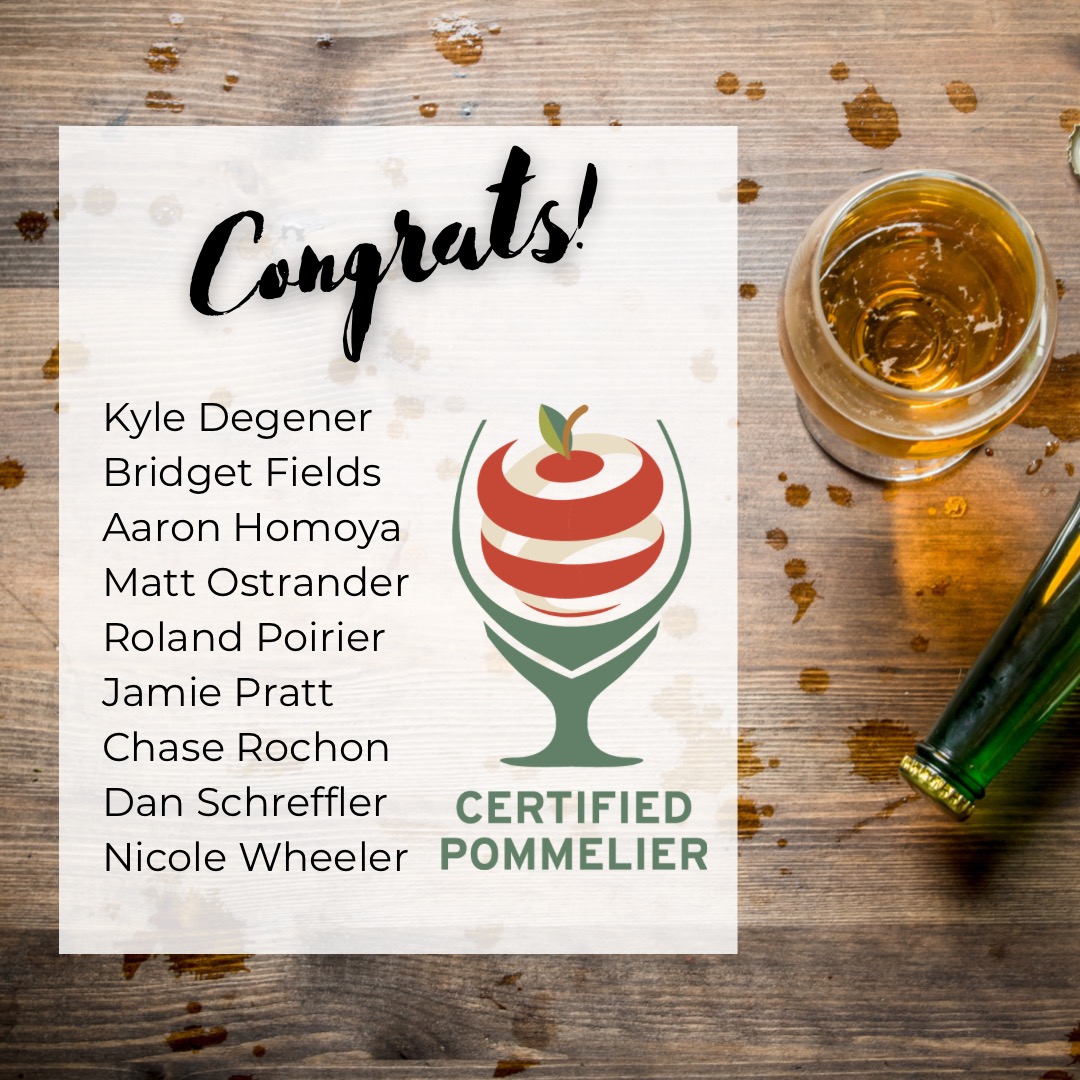Archive for March 2022
Meet Your Board Member: Christine Walter
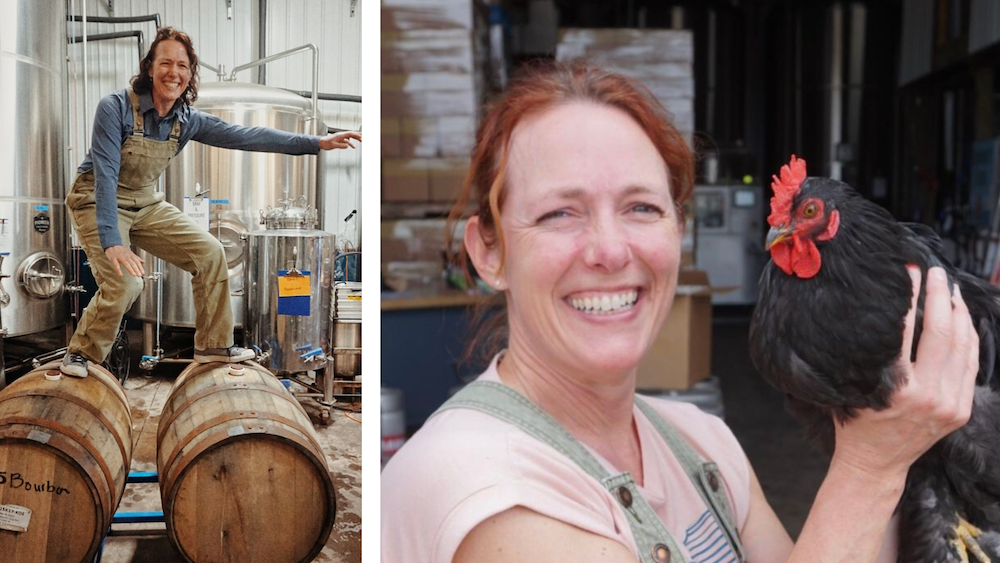
Where do you work and what is your position?
I am the owner and head cidermaker at Bauman’s Cider in Gervais, Oregon. I started the company in 2015, making cider on my family’s farm.
Tell us about your family farm/orchard.
My Great Great Grandmother Elizabeth homesteaded the original property back in 1895, having come from Austria-Hungary by way of North Dakota, with her two sons. Today we have nearly 1000 acres under cultivation, and about a dozen family members playing one role or another in farming, operating the farm store, and now, making cider!
We grow a wide variety of crops, including many cane berries, hazelnuts, fruits and vegetables. Currently we have about 22 acres of apple orchards.
How did you get into cider?
The first time I drank a bottle of cider was around 2013. I was on a fishing trip in rural Alaska and the beer selection was pretty slim. I ordered an Angry Orchard and it literally shocked me that it was basically fermented apple juice. Upon returning home to Portland, I began searching out all of the local craft options and just fell in love. I immediately started trying to convince my family that one of them should make cider on the farm with our own juice. In attempting to make the case for cider, I met makers and heard their stories, and began taking home gallon jugs of my family’s cider, experimenting and developing recipes.
My cousins didn’t get the cider bug right off, the way I did. But I convinced them to trust me and let me get a license and start with a little corner of one of the barns. Now I can’t get enough space and I take more than half of the apples grown on the farm to make cider, and I love it!
Why did you decide to run for a position on the board?
I really appreciate the role that the ACA plays in advocating for cidermakers. It is really important work and mustn’t be taken for granted. In my short tenure as a cidermaker, I have seen some really significant changes to the rules regarding land use, alcohol production and labeling, and taxation. Those changes don’t happen on their own, and not without a lot of work and planning from people who really care about the industry. I want to be part of that work. If we don’t fight for our own interests and values, no one will.
Additionally, I see that webinars and events like CiderCon® are what shape the future of the industry in keeping cidermakers and cider sellers at the top of their games professionally and educationally. If we are all left in our own little islands of knowledge and experience, we miss out on a lot of growth opportunities. CiderCon® is a big part of what will keep us as an industry moving forward, growing, adapting and innovating.
What are your hopes for the future of the US Cider Industry?
Of course I want to see it continue to grow, but also to be seen as a success story with regard to adaptation to changing climate and market conditions. We are perfectly poised to thrive. Apples have an amazing and diverse biological history. They have stood the test of time again and again, both through natural evolution as well as human-aided adaptation and hybridization/breeding programs. I hope that cidermakers can be as resilient and creative as an industry as our dear fruits have shown to be.
How do you describe your cider region?
I feel pretty darned fortunate to be from the Pacific Northwest. We not only have a nearly rogue sense of adventure, but the market supports this level of innovation and aversion to staunch traditionalism. Just as nature favors adaptation and evolution, the craft beverage market in this beautiful corner of the US appreciates and even demands that we always push the edge of what has been done before, in search of new frontiers of culinary and beverage experience.
At the risk of seeming irreverent, the culture of cider in the PNW can be said to take traditional methods and turn them on their heads, or maybe interpret them through a lens of kaleidoscope.
What’s your favorite apple to work with and why?
That’s a big old three-way tie between Porter’s Perfection, McIntosh, and Mountain Rose (aka Airlie Red). And even in saying this terribly non-committal response, I feel guilty for not saying Yarlington Mill, or Golden Russet, etc. I’m not good with decision making. Maybe my favorite apple is the one I’m picking or fermenting right at the moment…and I spent yesterday mulching my McIntosh trees, then cracked a bottle of last season’s McIntosh SV, so we can say that one for today.
What is your favorite cider/food pairing?
Ok, I think I can commit here: CHEESE! and most any cider. One specific favorite combo is a French Comte and a juicy acidic Porter’s Perfection Cider.
What is your favorite nature/cider pairing?
Summer paddle boarding on the river with dear friends, sipping a Cosmic Crisp by 2 Towns (in a life jacket.) Doesn’t get much better.
What would you like our members to know about you that they might not know?
Once I spent the night in a hammock, alone, in the jungle of Tikal, Guatemala so that I could watch the sunrise from the top of Temple IV. I am certain that the only reason I was not eaten or attacked by wild animals was that they were in complete awe at my stupidity. I could see their eyeballs watching me.
Nielsen 2021 Data Insights Webinar

Nielsen 2021 Data Insights Webinar – April 27, 2022 at 11:00am Pacific
Join the ACA and Nielsen for a review of 2021 Off-Premise cider trends with Nielsen. Nielsen VP Jon Berg will share sales trends by packaging, flavor, style and region. We will also look at the insights provided by our newest report with Nielsen, a comparative consumer panel study. We’ll identify cider’s strengths and areas for growth regarding consumer demographics, and we’ll compare it to wine, beer, FMBs and cocktails.
About the Speaker

You must be an active ACA member to attend this webinar. You can join or renew your membership here.
Ekos Cider Business School March 29

Our friends at Ekos are very excited to bring Cider Business School back for its third consecutive year! Join Ekos CEO Josh McKinney for an hour-long webinar exploring the state of the cider industry and providing a crash course on business management best practices. Attendees can expect to learn about:
- Technology adoption trends for cider businesses
- Streamlining team communication
- Driving efficiencies across your business
- Tips for increasing revenue
Meet Your Board Member: David Glaize
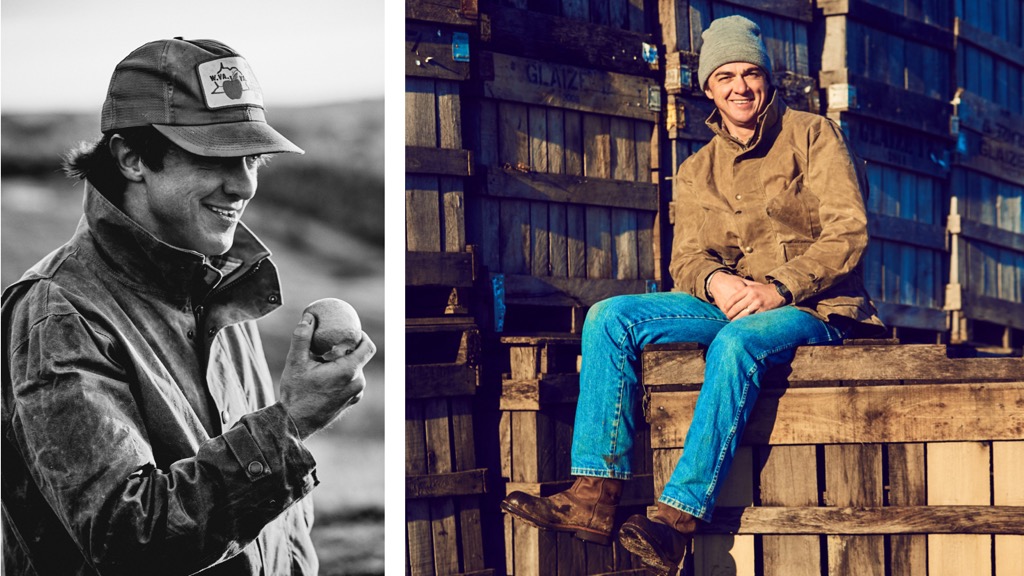
Where do you work and what is your position?
Co-owner of Glaize & Brother Juice Co. and Old Town Cidery
Tell us about your family farm/orchard
Glaize Apples are grown in the beautiful Shenandoah Valley of Virginia. Since the early 1900s, four generations of Glaizes have added to the history of premium fruit harvests between the Blue Ridge and Allegheny Mountains
How did you get into cider?
In 2012 my brother and I convinced our dad to top work existing trees into cider specific fruit. Around that same time I started experimenting with 5 gallon carboys and fell in love with the natural chemistry, and history, of the process. In 2017 we put in a juicing facility to service the cider/wine/beer industry with fresh pressed juice. In 2019 we hired a cidermaker (Stephen Kelly), and in 2020 launched Old Town Cidery.
Why did you decide to run for a position on the board?
I wanted to represent our region not only as a cidery but also as a grower. I want to help promote the growth of cider but also the expansion of apple orchards. It is important for me to keep the land in apples and working directly with cideries, orchardists, and law-makers can help achieve that goal.
What are your hopes for the future of the US Cider Industry?
I want to see the US Cider Industry continue to grow and establish itself as a leading producer of top notch cider throughout the world. We also need to better understand the demand for fresh juice vs concentrate, and the global supply/scale of apples and concentrate. The US Cider Industry has potential to play a large role in helping promote sustainable growing/juicing practices.
How do you describe your cider region?
Our cider region is dense with apple varietals, rich in history, and very complex. Virginia offers mass produced sweet ciders, fruity adjunct ciders, and also traditional single varietals of heirloom fruit. Virginia is home to some of the oldest apple varieties in the US, and some would argue Virginians were the first to drink, and perfect, the craft.
What’s your favorite apple to work with and why?
The Idared and Black Twig. The Idared is one of the first to come off the trees so it is early to the press. It is my favorite to ferment. Its flesh is straight white and loaded with fruity notes plus the perfect touch of acidity. The Black Twig is one of the last apples we pick and stores very well in cold storage. It showcases a thick body with an earthy aroma that is hard to find in any other apple. Both the Idared and Black Twig produce amazing single varietals, but also do well blended.
What is your favorite cider/food pairing?
In my eyes, it all pairs well together. I’m not too picky when it comes to food nor drink. But if I had to say something, it would be pork.
What is your favorite nature/cider pairing?
Its hard to beat drinking a cider while walking through the orchard that helped produce it.
ACA Welcomes 9 New Certified Pommeliers™
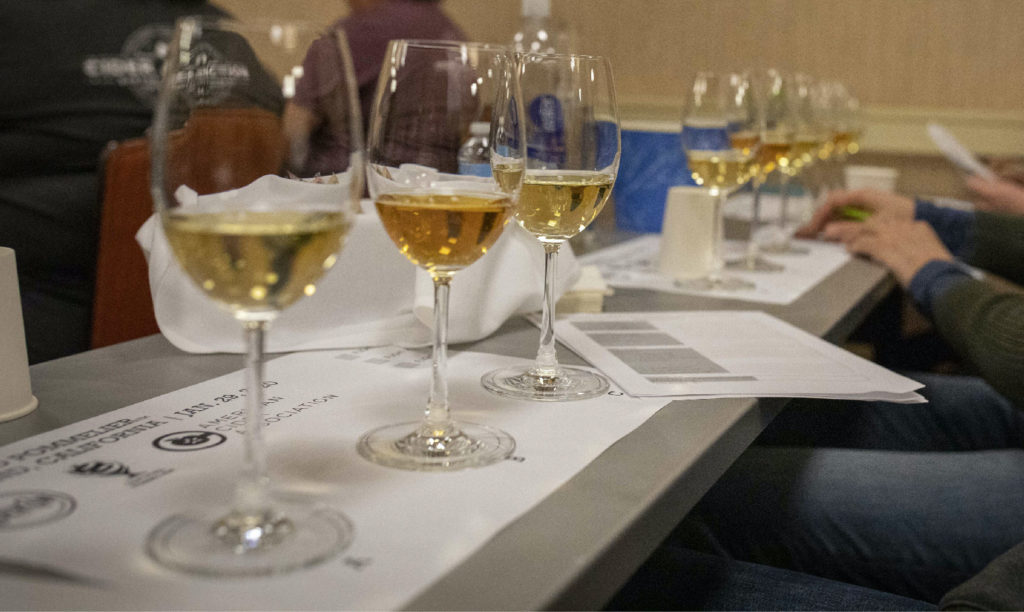
ACA Welcomes 9 New Certified Pommeliers™ to the Ranks of Cider Experts
The American Cider Association is pleased to announce that nine people passed the Certified Pommelier™ exam taken in February at CiderCon® 2022 in Richmond, Virginia. Newly Certified Pommeliers™ are: Matthew Ostrander of Ibantik Craft Beverages (UT), Dan Schreffler of Space Time Mead and Cider Works (PA), Chase Rochon of Craft Curbside (ME), Jamie Pratt of Liberty Ciderworks (WA), Nicole Wheeler of Treehorn Cider (GA), Aaron Homoya of Ash & Elm Cider Co (IN), orchardists Kyle Degener from Holy Beez Orchard, (KY) and Roland Poirier (NY), and cider aficionado Bridget Fields (DC). This is the largest cohort of successful exams on both cider theory and evaluation of the four exams offered to date.
Cider is a beautifully nuanced beverage with a diverse set of elements that are often misunderstood by food and beverage professionals. Certifications are increasingly used in the professional realm to set oneself apart as an individual with specialized knowledge, though cider is often covered in a cursory manner by most certification programs, if at all. This led the American Cider Association to establish its Certified Cider Professional (CCP) program to educate those on the front-line of cider sales.
The Certified Cider Professional program began with a Level 1 certification to help people obtain a fundamental understanding of cider. The Certified Pommelier™ certification was developed to move beyond a fundamental understanding and to encourage cider professionals to think critically while demonstrating a higher understanding of the elements of cider. Preparation for the exam demands months, if not years, of study and practice evaluating cider.
“The Certified Pommelier™ exam is designed to be rigorous. ” says Michelle McGrath, Executive Director of the ACA. “However, accessibility remains important. We’re rolling out more and more study aids in 2022, with a book on the horizon.”
The next Certified Pommelier™ exam is planned for June 20, 2022 in Seattle, Washington, and the ACA will announce one more test opportunity before CiderCon® 2023 in Chicago, Illinois.
The ACA asks that you contact Cider Education Outreach Manager Jennie Dorsey if you have questions about the program or are interested in taking either the Level 1 Certified Cider Professional test or the Certified Pommelier™ exam. You can also learn more at https://ciderassociation.org/certification.
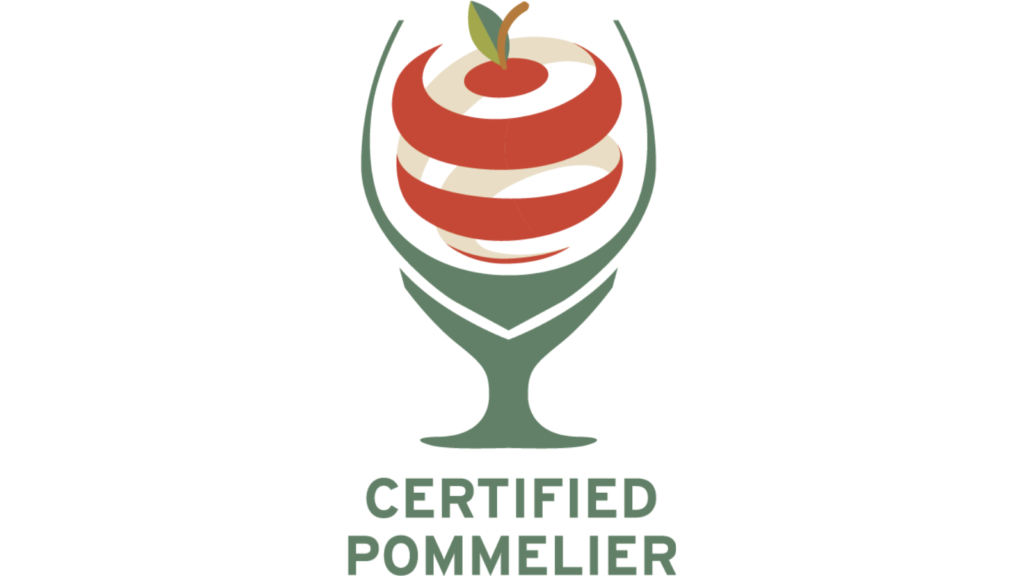
###

